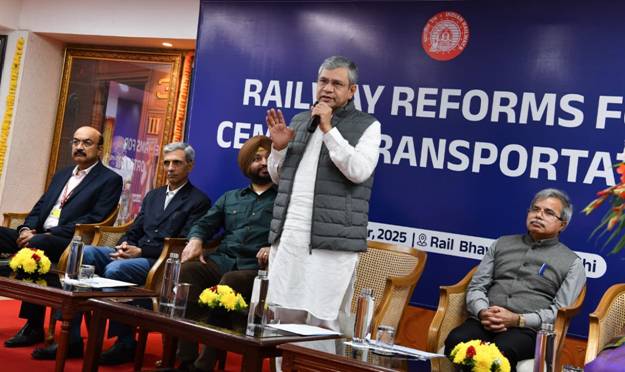Indian Railways on Tuesday announced a major overhaul of its bulk cement transportation policy, introducing a simplified freight structure and a new framework for developing dedicated cement terminals. Railways Minister Ashwini Vaishnaw unveiled the measures during an event at Rail Bhawan in New Delhi.
Describing the initiative as a game changer, the minister said the revised framework will help reduce cement prices, benefiting poor and middle-class families building homes. Under the new system, distance and weight slabs have been removed, and freight will be charged at a flat rate of ₹0.90 per tonne per kilometre based on the train’s actual Gross Tonne Kilometre (GTKM).
The policy promotes the use of tank containers for pollution-free, end-to-end multimodal logistics. These indigenously manufactured containers, built to standard 20 ft × 8 ft × 8.5 ft dimensions, offer a payload of 26 tonnes and can be loaded or unloaded within 25–30 minutes. Their design enables seamless movement between trains and trailers, ensuring efficient transport from factories to consumption centres.
The minister highlighted India’s growing freight capacity, noting that the country has become the world’s second-largest freight carrier, surpassing the United States. He also pointed to rapid rail network expansion—from 4 km per day a decade ago to 12–14 km per day today—and near-complete electrification of the broad-gauge network. More than 1,300 Amrit Stations are additionally under development.
As part of the reforms, Indian Railways will support the construction of bulk cement terminals nationwide. These terminals will be built with direct rail connectivity and equipped with silos, hoppers, bagging plants, and other mechanized infrastructure to improve handling, storage, and distribution. The initiative aims to cut logistics costs, reduce carbon emissions, lower dependence on road transport, and speed up turnaround times.
The new policy is expected to streamline large-volume cement movement, minimize packaging needs, reduce material losses, and significantly improve supply chain efficiency across the sector.














